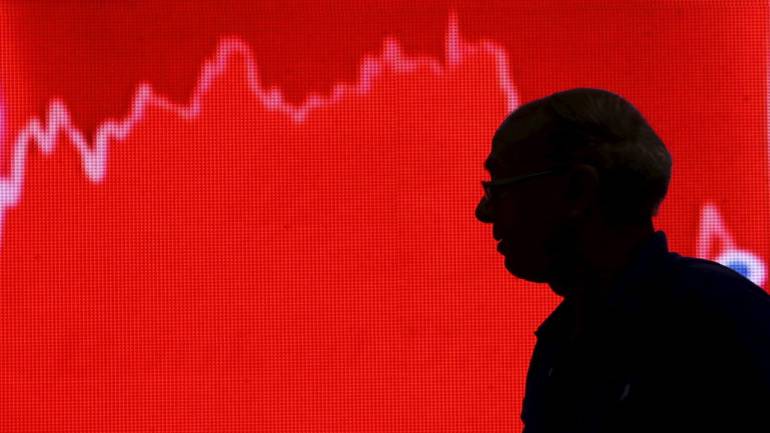The broader Topix declined 0.75 percent, with 31 of its 33 sectors in negative territory.
Asian markets edged lower on Thursday, with regional stock indexes recording slight losses after Wall Street declined amid concerns over heightened trade tensions.
The Nikkei 225 fell 0.82 percent as the yen firmed. Major exporters, including automakers and technology names, which had earlier traded mixed were mostly lower. The broader Topix declined 0.75 percent, with 31 of its 33 sectors in negative territory.
Against the yen, the dollar extended losses to 105.92 amid trade-related worries, below the 106.2 handle seen in the last session.
Across the Korean Strait, the Kospi slipped 0.3 percent. Samsung Electronics, which had earlier traded higher, was lower by 0.5 percent as other tech names recorded declines.
Hong Kong's Hang Seng Index declined 0.74 percent to extend losses in the last session, with financials the worst-performing subindex on the benchmark. The sector traded lower by 0.76 percent in the morning as heavyweights like HSBC and AIA fell 0.46 percent and 1.14 percent, respectively.
Mainland markets crept slightly higher, bucking the overall downward trend. The Shanghai composite edged up by 0.11 percent and the Shenzhen composite hovered around the flat line.
In Sydney, the S&P/ASX 200 shed 0.38 percent as losses in the heavily weighted financials subindex, which traded lower by 0.94 percent, weighed on the broader index.
Trade worries in focus
Asian stock indexes had closed lower in the last session as markets digested news of Rex Tillerson's ouster from the State Department and amid talk of potential additional US tariffs. The latter overshadowed the release of better-than-expected industrial output and fixed-asset investment data out of China.
Major US stock indexes all recorded declines, with the Dow Jones industrial average falling 1 percent, or 248.91 points, to close at 24,758.12.
Shares of Boeing fell 2.5 percent following news of potential trade measures, which could include investment restrictions and indefinite tariffs, being considered against China by President Donald Trump. Trump could implement tariffs on $60 billion worth of Chinese goods, according to Reuters.
The White House on Wednesday also said the Trump administration wanted China to reduce its trade surplus with the US by USD 100 billion, and not the USD 1 billion figure Trump had tweeted last week.
The dollar index, which tracks the greenback against a basket of rival currencies, stood at 89.637 at 9:37 a.m. HK/SIN.
Larry Kudlow, the Trump administration's newly tapped top economic advisor, on Wednesday told CNBC that a "a great country need[ed] a strong currency."
Those remarks, however, were unlikely to lift the dollar much given how concerns over the possibility of a trade war continued to simmer in the background, wrote Mizuho Bank economist Zhu Huani in a note.
Oil prices held onto overnight gains after data on Wednesday showed US crude inventories rose more than expected, while gasoline inventories dropped more than forecast. US crude futures edged up 0.16 percent to trade at USD 61.06 per barrel and Brent crude futures tacked on 0.09 percent to trade at USD 64.95.
What's on tap
Here's the economic calendar for Thursday (all times in HK/SIN):
10:30 a.m.: Singapore unemployment rate12:00 p.m.: Indonesia balance of trade
On the earnings front, corporates due to report results on Thursday include Hong Kong's Swire Pacific and Taiwanese iPhone assembler Pegatron. China's ZTE and China Unicom are also slated to report.